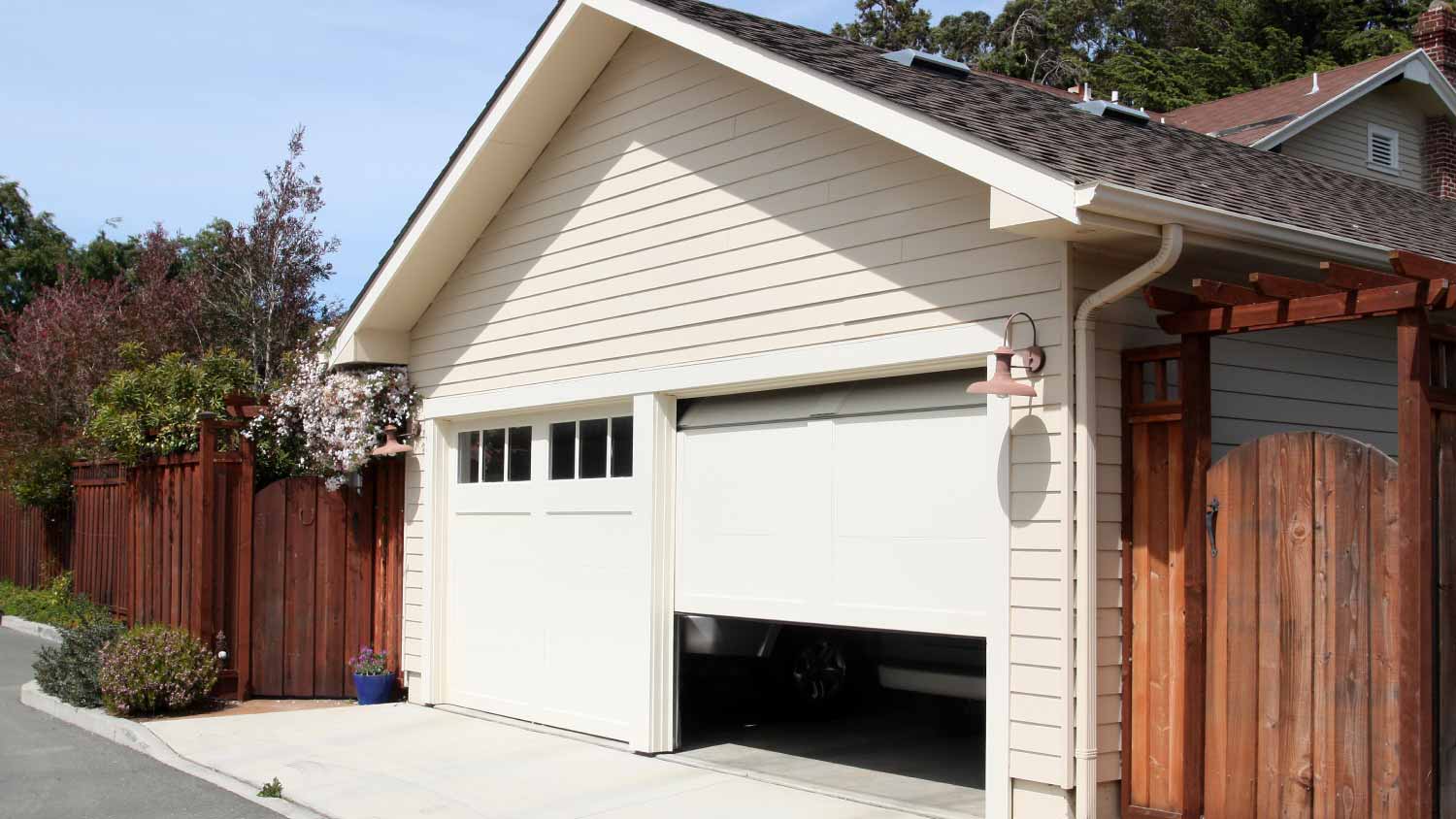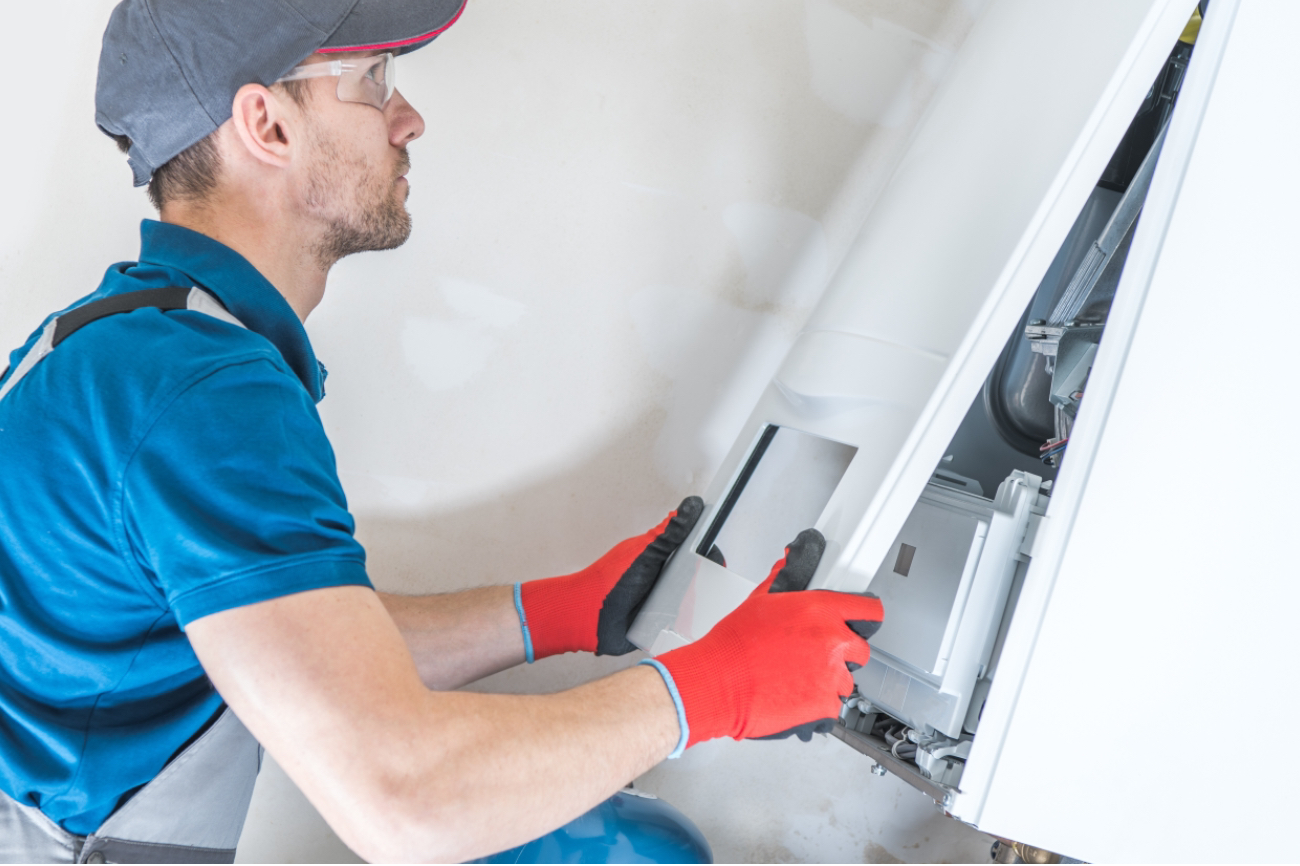
What you’ll pay in Columbus, OH, for furnace repairs depends on many factors. Here’s a breakdown of what can go wrong and the cost to fix those issues.
A little doesn’t always go a long way


Cracking your garage door can help with heat by adding air circulation, but it will only work if outdoor temperatures are cooler.
Cracking your garage door leaves your home vulnerable to pests and home intruders.
Adding garage insulation is the best way to help keep your garage cool in the summer and warm in the winter.
Stifling outdoor temperatures can transform your garage into an oven, ultimately affecting your home’s overall energy efficiency. So, does cracking the garage door help with heat? The answer is yes, but don’t get too excited. Cracking the garage door will help only to a certain extent. Let’s review why it works and what else you can do to help keep your garage cool.

Cracking the garage door open allows air to move in and out of the space, slightly improving airflow. However, a few factors have to come into play for this to be effective.
For starters, the outdoor temperature will have a major impact: Cooler air can enter if outdoor temperatures are cooler. But if it’s equally hot or hotter outside, this will not work and can even make the situation worse by letting in more hot air.
Another factor that affects whether cracking the garage door helps with heat is the level of air circulation in the garage. Cracking the door open generally only works if there is decent air circulation, which most garages tend to lack. If there is nothing to move the air inside the garage, such as a fan, then the outdoor air won’t have an effective way to get in—especially if there aren’t any outdoor breezes to help move it along.
Opening the garage door in the warmer seasons has a few pros and cons you should consider.
Cracking your garage door can offer slight benefits for cooling the space under the right conditions. With the additional ventilation, some fresh air can be let in, which can slightly cool the space and make it less stifling.
Plus, when the outdoor temperatures are cooler in the mornings and evenings, cracking the door can help dissipate some of the heat that’s built up throughout the day.
However, there are a few strong cons to consider for this method. The cooling effect is limited, especially if there is poor air circulation within the garage. More importantly, though, there is a serious security risk involved. Even if the space is minimal, intruders may find a way to get inside, putting your home and family at risk. What’s more, small animals and other pests can also find their way in, which can be a nuisance at best and a danger at worse.
Lastly, in terms of energy efficiency, if your garage is attached to your home and shares a wall with your living space, cracking the garage door may cause your home’s cooling system to work harder, and you might need the services of a local HVAC repair technician sooner than you would if you left the door closed.
If you’re looking for more effective ways to cool your garage, there are a few alternative solutions to consider:
Increase ventilation: Installing a garage exhaust fan or similar ventilation system will help circulate the air and prevent it from getting trapped inside. You can also use a portable fan or air conditioner to help actively move the air and reduce heat buildup. Either of these methods will offer quicker, safer, and more effective ways to control your garage’s heat.
Install weather stripping: Place weather stripping outside the garage door to help keep out humid air. If your garage has windows, you should also place weather stripping around them to ensure a proper seal.
Use a dehumidifier: A dehumidifier pulls out moisture from the air, so it won’t feel quite as humid. While this won’t lower temperatures significantly, it can make the garage feel less stuffy.
Add insulation: The last—and most important—method to consider is adding proper insulation to the garage walls and ceiling, which will help prevent that hot air from penetrating your garage in the first place. The cost to insulate a garage professionally ranges from about $1,900 to $7,700 or you can insulate a garage yourself with the right skills and materials. Plus, once temperatures outside drop again, even then best type of garage heater can only work so well without the proper insulation. With that in mind, investing in garage insulation is something that will pay off year-round.
From average costs to expert advice, get all the answers you need to get your job done.

What you’ll pay in Columbus, OH, for furnace repairs depends on many factors. Here’s a breakdown of what can go wrong and the cost to fix those issues.

If your furnace is malfunctioning, it could be a faulty control board. Find out what a furnace control board replacement costs for parts, labor, and more.

Discover the true window AC unit installation cost to learn about labor, permits, and ways to save on your window AC project.

Explore the most common HVAC duct types, from flexible to sheet metal to fiberglass, and learn about their pros and cons.

Discover heat exchanger replacement costs to learn about price factors, labor, and ways to save before hiring a pro or starting your project.
How to clean your air conditioner depends on the unit type. Sometimes, a good hose-down is all you need if you have centralized AC. This guide can help with the cleaning process.